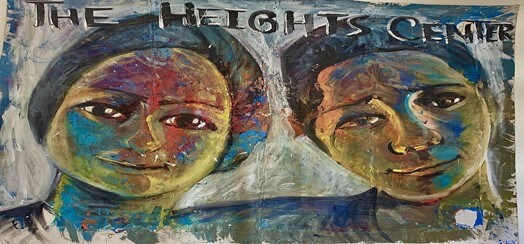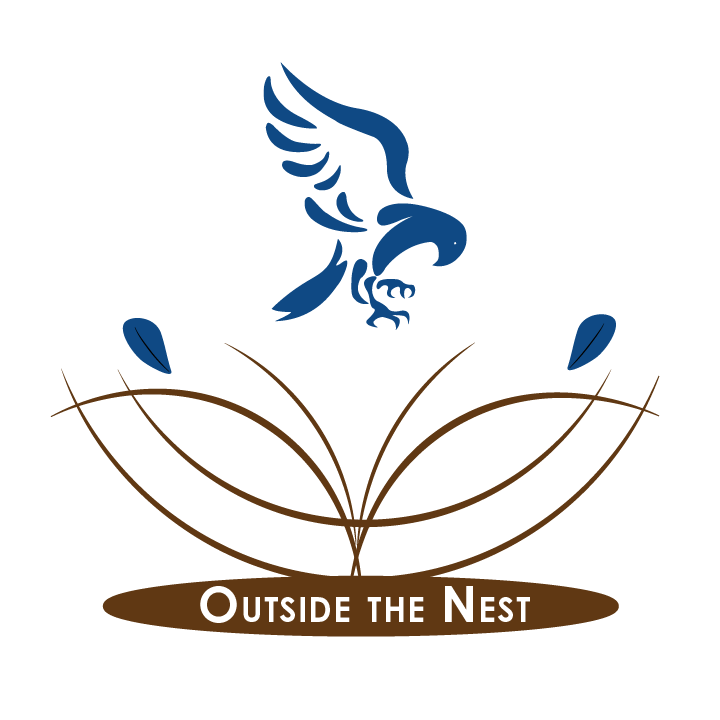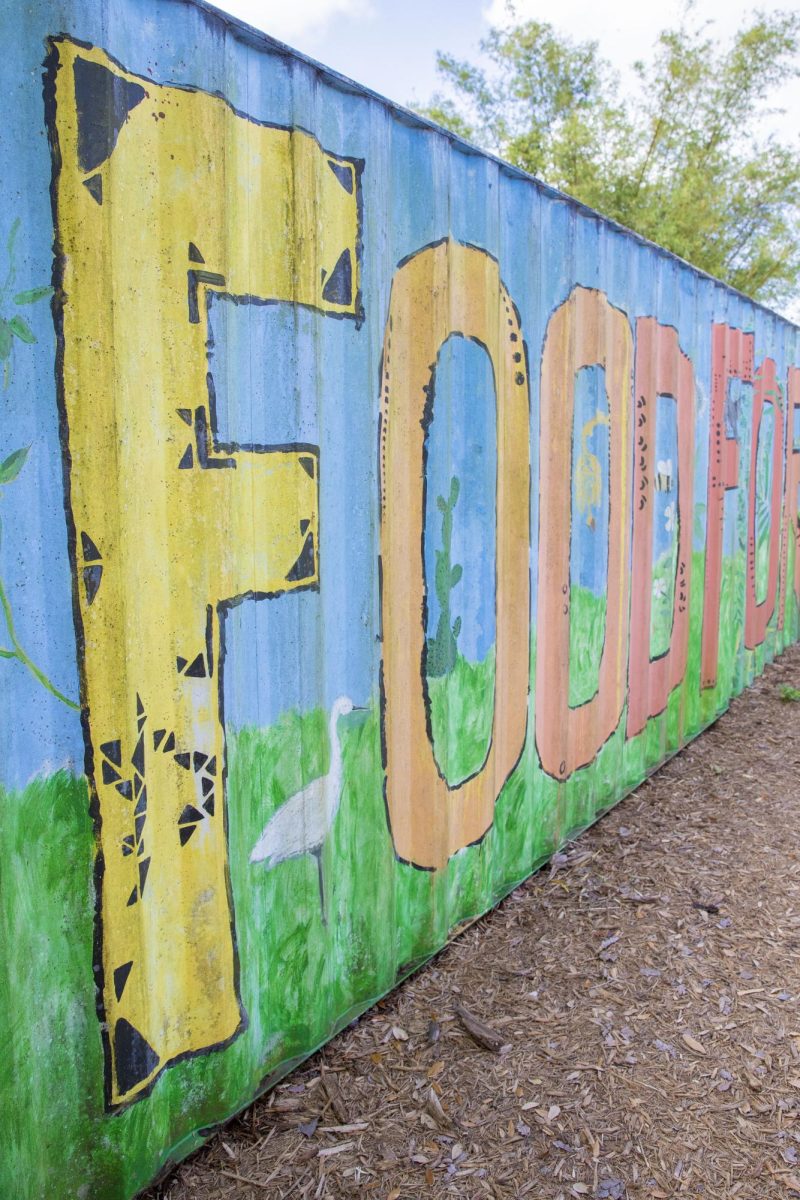Kathryn Kelly: from Architect to Accidental CEO

Photo provided by The Heights Foundation
April 27, 2021
Kathryn Kelly is the CEO and founder of The Heights Foundation, an organization that works to build strong, sufficient families in the Harlem Heights neighborhood in Fort Myers, Florida.
Many families in Harlem Heights are in poverty, with 31% of families in the neighborhood living below the federal poverty level, according to the 2010 general census.
“A lot of kids that grow up in a low-income environment don’t get to see a lot of beauty,” Kelly said. “We wanted to have a place that was beautiful for a lot of reasons. For one thing, it makes you feel good. It makes you happy. I just want [the kids] to realize that you can make something beautiful.”
Kelly considers herself to be an accidental CEO. She didn’t set out to start and run a nonprofit. One event led to another, and she found herself at the forefront of what would become a refuge and resource for many to rely upon.
“I would have never dreamed this would happen in a million years,” Kelly said.
When Kelly was a child, everyone who lived at Harlem Heights either worked as a farmhand or in the shrimping industry. Her father was a farmer, and all his field hands came from Harlem Heights.
Byron West, the senior pastor at Westminster Presbyterian Church, said it’s only logical that Kelly was drawn to work in Harlem Heights since she grew up knowing the area.
“Kathryn, having grown up here, knowing the farming families… Her heart has really pricked in terms of wanting to do something to help those families,” West said.
In 1981, Kelly began her career as an architectural project manager. She was born and raised in Fort Myers and worked as an architect before moving to Seattle, Washington, to work for eight years. Kelly moved back to Fort Myers, around 1996, to be with her parents, who were aging. Kelly continued to work in Fort Myers as an architect before The Heights Foundation was created in 2000.
Kelly never planned for The Heights Foundation to come into existence; it was accidental.
Back from Seattle, Kelly drove through Harlem Heights during the holiday season. It was one of the first times she had driven through the neighborhood since she was a child. She thought maybe some families would enjoy getting some food for Thanksgiving. She asked her church, Westminster Presbyterian, to help with a Thanksgiving drive. They gathered groceries to give to families in need within the Harlem Heights neighborhood.
“She came to Westminster with the plan to give out meals, thinking that would kind of be it,” West said. “Just a kind of, feel-good, let’s go bless our neighbors. That’s where the involvement began for Kathryn, and that’s what blossomed into The Heights Foundation.”
Kelly asked one of the women in the neighborhood for names and addresses of people in Harlem Heights who might appreciate getting a turkey and some groceries. Kelly and volunteers from Westminster delivered food to 50 different families.
At one house, some kids ran out to greet them.
“Something about the kids was just amazing. I can’t say what it was, but something just grabbed me,” Kelly said.
There were six kids in this family. Kelly went back to see them again after delivering more food.
The mother of the family, Anna, wasn’t home with the kids since she was working. There was a very cold winter that year. The house didn’t have heating, so Kelly brought a few electric heaters. She kept bringing supplies the family might need, and this went on for a few months.
Kelly told the kids to tell Anna she’d like to help their family if there was anything else she could do. When Kelly drove through the neighborhood one day, she saw Anna and her kids in their yard. She invited Kelly to come over the next day since Anna would be off work.
“It was the first time I had actually gone inside the house. Every other time the kids had gone outside. Since mom wasn’t home, I didn’t feel comfortable going in the house,” Kelly said.
Kelly saw that the bathroom and plumbing weren’t working as soon as she entered the house. The kitchen plumbing dripped onto the concrete floor. The doors were open to the two bedrooms that belonged to the kids. Kelly noticed mats inside that the kids slept on.
As Anna sat with Kelly at the kitchen table, Kelly noticed a ceiling fan that had a big plastic bag tied to it. Anna explained through the kids –who translated the conversation– that rats came out of the attic and got into their food at night. They had to tie the fan with a bag so the rats wouldn’t get into the kitchen.
“For me, having grown up here, born and raised, got a decent education, came back… I couldn’t believe that kids were living in these kinds of conditions. I had no idea,” Kelly said. “I was embarrassed that I was that naive to what was going on in the community. Literally, a mile from where I was born and raised.”
Kelly could not forget about the poor conditions the family lived under.
“Once I knew that I couldn’t unknow it… I was just thinking I can’t go to sleep in my bed with these nice clean sheets, knowing that kids are lying asleep on the floor with rats crawling on them at night,” Kelly said.
That evening, Kelly had dinner with some of her friends and told them about the experience she had seen the family’s house. Kelly and her friends decided to help find a decent place for Anna and her six kids to live.
A donor from Westminster Presbyterian church gave the $35,000 needed to purchase a house. It wasn’t in good shape when it was bought, but volunteers from the church spent three weekends helping to renovate the house for Anna and her kids.
When Kelly and the volunteers bought the house, they realized they had to decide who’s going to own it. As a solution, Kelly formed a nonprofit that claimed ownership of the house.
Kelly got to know Anna better through this project. Kelly would go by to make sure everything was going well, and since Anna didn’t speak English very well, Kelly would babysit her kids so Anna could go to English classes.
Kelly still worked as an architect full-time when she helped Anna and her family.
Other kids in the neighborhood started to show up at Anna’s house, whom Kelly started to work with as well, and it was difficult to balance a full-time job while trying to help meet needs in the Harlem Heights neighborhood.
“Other kids in the neighborhood got involved… There’s a huge need in the community, and I can’t just do it in my spare time,” Kelly said.
Kelly quit her job, and David Lucas, a local philanthropist, gave her a six-month salary to get started with what became The Heights Foundation
























